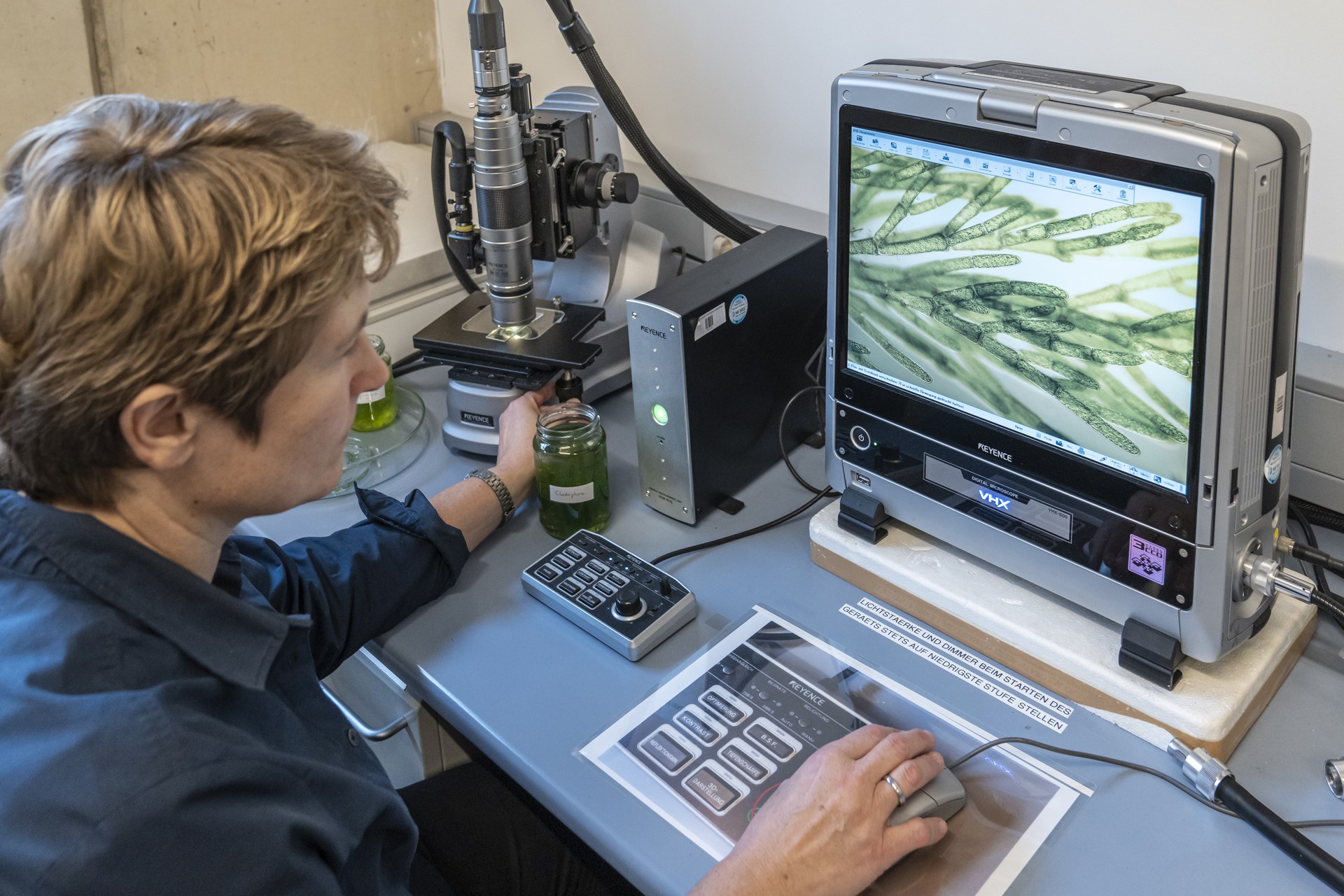
BioGeoSciences
Master of ScienceClimate change, species extinction, extreme weather, destruction of ecosystems - the list of current environmental problems is long. The research-oriented Master's degree programme in BioGeoSciences is aimed at anyone interested in the ecological effects of human intervention in the landscape. The target group are prospective students who wish to gain further qualifications for a demanding career in the environmental field or who are aiming for a doctorate.
Overview
Climate change, species extinction, extreme weather, destruction of ecosystems – the list of current environmental problems is long. The research-oriented Master's programme in BioGeoSciences is aimed at anyone interested in the ecological impact of human intervention on the landscape. The target group is prospective students who want to gain further qualifications for a demanding career in the environmental sector or who are aiming for a doctorate.
| Degree | Master of Science | ||||
| Standard period of study | 4 | ||||
| Start of programme | Summer semester Winter semester | ||||
| Application deadline for summer semester | |||||
| Application deadline for summer semester for internationals |
| ||||
| Application deadline for winter semester | |||||
| Application deadline for winter semester for internationals |
| ||||
| Teaching language | English German and English | ||||
| Admission restriction | no | ||||
| Admission requirements | Very good English skills, at least at level B2. Admission may be granted regardless of the overall grade if there are special academic reasons for doing so. The board will decide on any exceptions based on the applications submitted. Bachelor's degree in a six-semester study programme with an environmental science focus, with a grade of ‘good (2.5)’ or better. |
Contents and structure
The degree programme combines the core subjects of biology and geography. During your studies, you will acquire knowledge in the fields of conservation biology, water management, biodiversity, landscape ecology, geoecology and physical geography. The study programme prepares you for a challenging career in the environmental field or a doctorate at a later stage.
The compulsory part of the programme consists of seven modules in English with a total of 48 ECTS credits. A special feature of the study programme is the opportunity to set individual specialisations in the extensive compulsory elective area (42 ECTS credits). This is possible in the following areas: biodiversity, terrestrial ecology, aquatic ecology, tropical ecology, geoecology, regional development, humans and the environment.
The content of the degree programme covers the following areas in the foundation course:
Compulsory modules: 7 English language modules:
- Conservation Biology
- Diversity of angiosperms
- Management and ecology of water bodies
- Methodological geoecology
- Landscape Ecology
- Physical geography
- Research internship
Advanced compulsory area: Chose out 7 of 20 German and English language Modules in the areas of:
- Biodiversity
- aquatic or terrestrial ecology
- tropical ecology
- geoecology
- regional development
- Human and environment
- Experimental design and data analysis
Practical and research relevance:
The proportion of practical courses is very high. These include excursions, field and laboratory exercises and seminars. The case studies and the research internship in particular serve to deal with a specific scientific question in small groups and to apply the knowledge learnt in practice.
This also ensures a strong research focus. Courses taught in English prepare students for working in an international context during their studies.
Prospects
As a graduate, you will have a wealth of Natural Sciences and methodological competences. This will qualify you to work in environmental research or as a consultant in federal and state authorities, municipalities and municipal associations, national and international companies as well as engineering and consulting firms.
Semester abroad
A semester abroad can be easily integrated into the programme thanks to the extensive range of elective courses
Research cooperation
Close research cooperation exists with the Federal Institute of Hydrology in Koblenz, African universities in Rwanda and Madagascar, and numerous other research institutions in Germany and abroad.
Applicants with foreign university entrance qualifications
Please find out more about the separate application process under International and Apply Now!
Due to the long visa application process, we strongly advise non-EU students to apply for the summer semester by 15 November and for the winter semester by 15 May.




